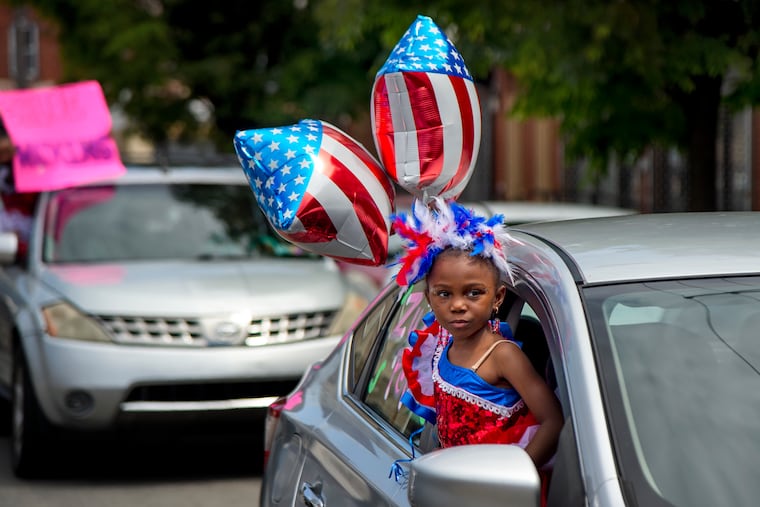A dance ‘recital’ the coronavirus couldn’t stop
B'Ella Ballerina Dance Academy in North Philly just improvised with an hourlong procession of decorated vehicles, with costumed dancers hanging out of windows, poking through sunroofs — even bursting from open trunks,

The dances were practiced. The hall was booked. The costumes were ordered.
Everything was all set for the 85 dancers at B’Ella Ballerina Dance Academy north of Center City to perform for family members at the nonprofit’s yearly recital.
Then the coronavirus hit, first putting an early stop to this season’s classes, then scuttling plans for the performance and award event.
“I was like, ‘This is unbelievable,’" said Roneisha Smith-Davis, owner of the dance studio, which draws students from neighborhoods throughout North Philadelphia. “I can’t stand them not having a show.”
Her solution: curbside pickup.
Instead of handing certificates, medals, and trophies to her students as they finished their performances at the charter school auditorium they’d originally reserved for the event, families were invited to parade by the studio in their cars for the socially distant handoff of those awards.
The result was an hour-long procession of decorated vehicles through the neighborhood, with costumed dancers hanging out of windows, poking through sunroofs — even bursting from open trunks, Smith-Davis said.
The toddlers in Smith-Davis’ youngest group wore sequined tutus. Older students in her advanced jazz class wore shiny purple Prince-inspired blouses with elaborate ruffled collars and sleeves.
“It was really fun,” said Jumaya Lewis, 12, of Strawberry Mansion, who came dressed in a fatigue-colored outfit with stripes and sequins that she and her classmates had hoped to wear for their hip-hop performance at the recital. “I could see my friends and I missed them.”
When families reached the studio near 12th and Spring Garden Streets, where Smith-Davis had set up an archway of balloons as a marker, they stopped their cars long enough for her to hand off their awards.
After so many weeks of being isolated from one another, though, some of the dancers’ families wanted to keep the party going and circled the block a few times before heading home, Smith-Davis said.
“They really showed up,” she said. “It was like, ‘Wow, we still were able to do something and they still felt like something positive came out of it.’”